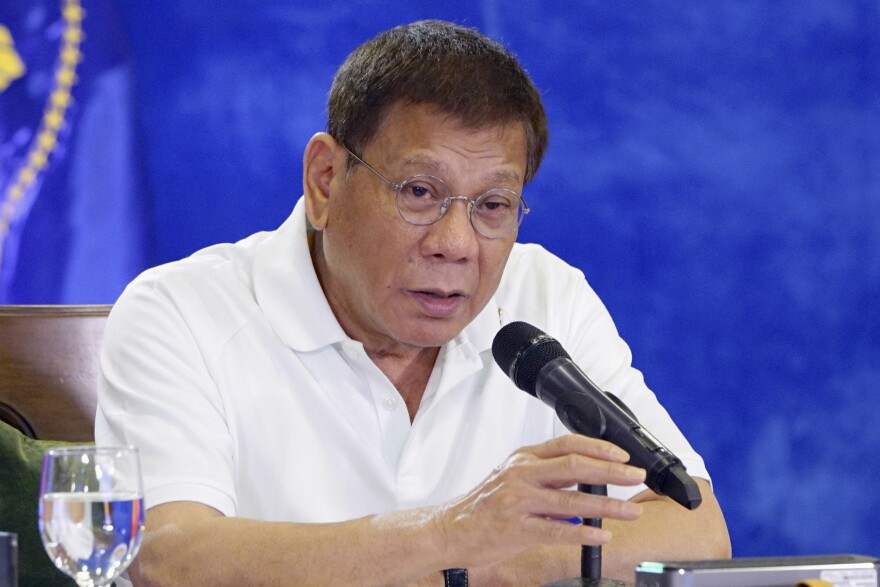Communities around the world are debating whether to ease certain restrictions as new cases of COVID-19 decline or stabilize. In the Philippines, that discussion has ended — at least for the time being.
The Philippines’ presidential task force on COVID-19 recommended an easing of some quarantine restrictions. But at a cabinet meeting on Monday, President Rodrigo Duterte rejected that move, “unless there is a rollout of vaccines.”
This has been an ongoing debate in the Philippines over the past several weeks.
The Secretary of Socioeconomic Planning recommended placing the entire country under minimal restrictions in a move he said would address poverty and income loss during the pandemic.
Mayors of the various smaller cities and townships included in Metro Manila agreed — as did the Inter-Agency Task Force on Emerging Infectious Diseases.
But Duterte said the country is not ready for such a move.
The Philippines has reported more than half a million cases and more than 12,000 deaths from COVID-19 — the second-highest totals in Southeast Asia trailing only Indonesia.
Duterte has been criticized for an inconsistent series of lockdowns and critics say some close to him have received preferential treatment when it comes to vaccinations.
Separately on Monday, the Philippines government cleared a third vaccine for emergency use in the country — the Chinese CoronaVac vaccine. But it won’t be used on medical workers nor on the elderly.
The government said late stage trials showed a lower efficacy rate for both groups.




